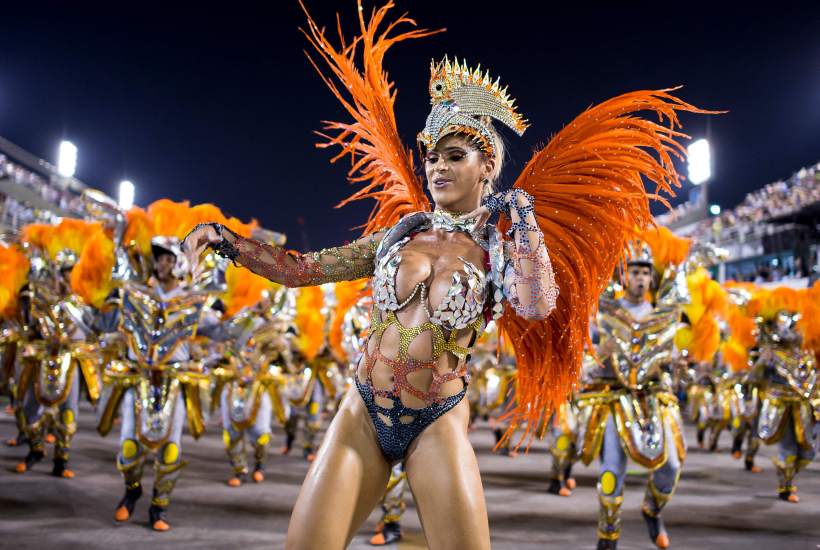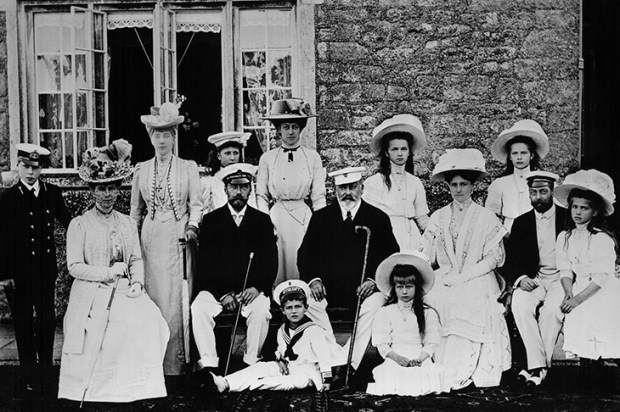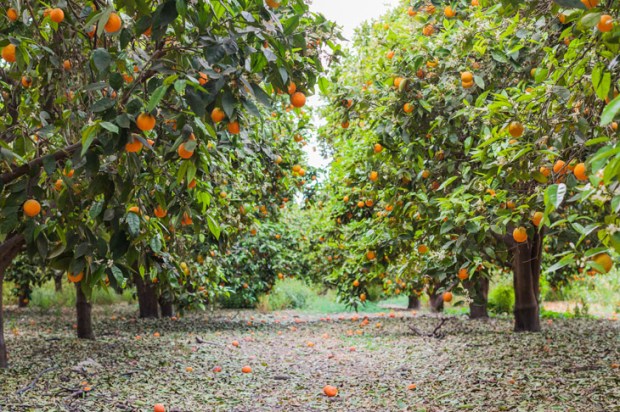As the great Bossa Nova musician Tom Jobim liked to say, Brazil is not for beginners. This tends to be the case for biographies too: an admiration for the protagonist comes first. But once one has a taste for the flair, language and music of Brazil, the extraordinary tale of the pressure cooker that forged it heaves into view.
Five centuries of pharaonic boldness and brutality meander through this hefty tome. In relating the events that shaped Brazil’s vast and unlikely realm, the authors seek to dispel the ‘fairytale’ myths that continue to distort reality.
Take cachaça, Brazil’s national liquor. The reader may consume it in a genteel setting in a caipirinha cocktail. But learning here about the brutal slavery on the sugar plantations casts it in a less agreeable light. Its alternative name is pinga, from the verb ‘to drip’, and it turns out that this alludes to condensed steam falling upon toiling slaves as liquid sugarcane boiled in the furnaces. The slave traders would then peddle the fiery liquid on the coasts of Africa in exchange for new human cargoes.
From the colonial era to the military dictatorship that still lingers in recent memory, the authors show that dissenters and separatists have encountered brutal repression, as successive rulers have held the centre with an iron fist. Under the generals who ruled from 1964 to 1985, the torture and murder echoed the horrors of the pelourinho, the public pillory of colonial days, where rebellious slaves were savagely whipped. We also see how the dictators’ heavy-handed hubris fuelled debt and inflation, and nourished a confusion between public and private property that continues to plague Brazil’s politics in spectacular fashion today.
Yet despite all the tribulations and the violence, Brazil’s luminous charms shine through, as does its power to enthuse and assimilate newcomers. When the Napoleonic wars forced the Portuguese court to flee Lisbon — with an escort from the British navy — it set up shop in Rio. The king would eventually return to Portugal, but with a heavy heart, uttering that dreamy word for longing and sadness, saudade.
The long presidency of Getúlio Vargas, beginning in 1930, also throws up a degree of paradox: he promoted samba music and the formerly illegal sport of capoeira as symbols of a self-confidently mixed culture, even as he demonstrated scant regard for human rights and handed a Jewish opposition activist over to the Nazis. The reader also learns about other syncretic cultural symbols that sprang from all the mixing under pressure, including that of Brazil’s emblematic dish, the feijoada, which has come to symbolise, with its black beans and white rice, the mixture of the races.
The authors tell a tale of politics and power, but the people’s love of freedom comes across too, from escaped slaves forming independent communities known as quilombos, to musicians getting around censorship with clever plays on words. Freedom also rang out in 1984, when opposition leaders such as Lula — who would go on to be president but now is in jail following a hotly contested corruption conviction — headed up nationwide protests that burgeoned out of the dictatorship’s control.
A new era of democracy would emerge, in which a constitution was to hold the centre. Major policies like the Plano Real — the strategy that finally reined in hyperinflation — would come into force much more transparently and democratically than before. Yet following the highly controversial impeachment, in 2016, of President Dilma Rousseff — who herself had languished in the dungeons of military rule — Brazil once again has a president it didn’t choose. With Lula now unable to run again despite his significant popularity, and millions of Brazilians chomping at the bit to return to the polls later this year, the country’s democracy and constitution face a new test.
Brazil’s history is packed with twists, turns and surprising stories, and on that level this book does not disappoint. Yet while it sometimes groans with details, I would have liked to get a clearer sense of the dramatic demographic explosion that has roughly quadrupled the population since 1950, and to read more about the history of immigration that multiplied it by about five from the early 1870s until the mid-20th century.
In the lobby of the Folha de S. Paulo newspaper, I recall a large painting depicting the metropolis in the early 20th century, bustling with immigrant endeavour. It is this effervescence that makes Brazil such an exciting country — generous, confident and innovative people who often take pride in the jeitinho, that ‘little way’ they often find to overcome red tape and roadblocks. Only once one has a sense of the country’s living autobiography — the people, the music, the language — will one be truly ready for this fascinating biography of the realm that hosts it.
Got something to add? Join the discussion and comment below.
Get 10 issues for just $10
Subscribe to The Spectator Australia today for the next 10 magazine issues, plus full online access, for just $10.
You might disagree with half of it, but you’ll enjoy reading all of it. Try your first month for free, then just $2 a week for the remainder of your first year.














Comments
Don't miss out
Join the conversation with other Spectator Australia readers. Subscribe to leave a comment.
SUBSCRIBEAlready a subscriber? Log in